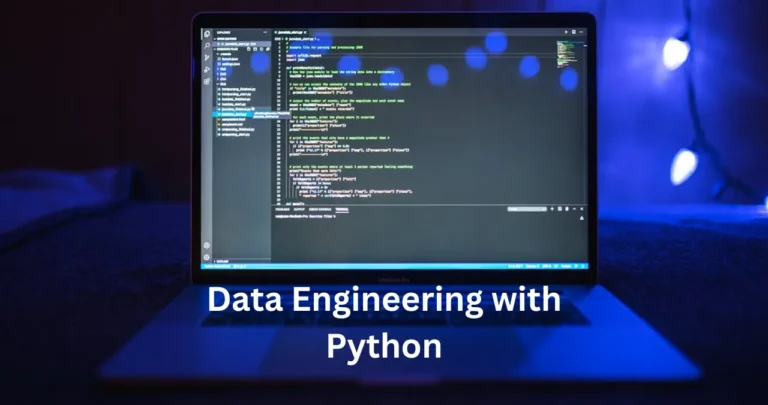The tech world’s hottest debate isn’t iOS vs Android anymore – it’s data engineer vs data scientist. Both roles are crushing it, but which one’s your golden ticket? Let’s break down the real differences so you can make the smartest career move.
What’s the Real Difference?
Here’s the deal: data scientists are the detectives, and data engineers are the architects.
Data scientists dive deep into datasets, hunting for patterns that’ll make your boss look like a genius. They’re the ones building machine learning models and turning raw numbers into “holy grail” business insights. Think of them as the cool kids who speak fluent Python and can predict customer behavior better than your ex predicted your breakup.
Data engineers build the highways that data travels on. They create the pipelines, databases, and infrastructure that make data scientists’ work possible. Without them, data scientists would be stuck with messy, unusable data – like trying to cook a five-star meal with ingredients scattered across three different kitchens.
Skills That Actually Matter
Data Engineer Must-Haves:
- Database Architecture: You’re building the foundation where terabytes of data live and breathe
- ETL Tools: Extract, Transform, Load – your bread and butter for data movement
- Programming Power: Python, Java, SQL – the trinity that pays your bills
- Cloud Platforms: AWS, Azure, Google Cloud – because everything’s in the cloud now
- Data Pipeline Management: Keeping the data flowing 24/7 without breaking a sweat
Data Scientist Essentials:
- Statistical Analysis: Your math skills need to be sharper than your coffee
- Machine Learning: Building models that actually work (not just look pretty)
- Programming: R, Python, and SQL – your weapons of choice
- Business Acuity: Understanding what the C-suite actually wants
- Data Visualization: Making charts that don’t put people to sleep
Who’s Getting Paid?
Let’s cut to the chase – you want to know who’s making bank.
2025 Salary Breakdown:
- Data Scientists: $145,000 – $180,000 average
- Data Engineers: $140,000 – $175,000 average
The gap’s getting smaller, but data scientists still edge out slightly. However, senior data engineers in hot markets like San Francisco and New York are pulling $200K+ without breaking a sweat.
Pro tip: Location matters more than you think. A data engineer in Austin might out-earn a data scientist in Cleveland.
Job Market Reality Check
Both roles are exploding, but here’s what the numbers actually show:
Data Scientist Demand:
- 115,000+ job openings in 2025
- 38% year-over-year growth
- Every company thinks they need one
Data Engineer Demand:
- 95,000+ job openings in 2025
- 42% year-over-year growth
- Companies finally realize they need solid infrastructure
Data engineers are having a moment. While everyone was obsessing over data scientists, smart companies figured out they need solid data infrastructure first.
Which Path Fits Your Personality?
You’re Data Engineer Material If:
- You love building systems that work flawlessly
- Problem-solving backend challenges gets you excited
- You prefer stable, predictable work over constant experimentation
- You’re the type who fixes things before they break
You’re Data Scientist Material If:
- You’re curious about the “why” behind everything
- You enjoy presenting findings to non-technical folks
- Experimentation and hypothesis testing sound fun
- You want to directly impact business decisions
The Career Progression Game
Data Engineer Path: Junior → Senior → Lead → Principal → Engineering Manager → VP of Engineering
Data Scientist Path: Analyst → Scientist → Senior → Principal → Research Director → Chief Data Officer
Both paths lead to executive roles, but data engineers often move into broader technical leadership while data scientists gravitate toward strategic business roles.
Making Your Move
Here’s my take after working with both roles: choose based on what energizes you, not just salary numbers.
If you’re starting fresh, data engineering might be your smarter bet. It’s got strong fundamentals, growing demand, and doesn’t require a PhD to break in. Plus, you can always pivot to data science later – the skills transfer well.
Already have analytical chops? Data science could be your fast track to business impact. Just be ready for the competition – everyone and their cousin is trying to become a data scientist.
The Bottom Line
Both data engineer vs data scientist roles are goldmines. Data engineers build the foundation, data scientists extract the gold. Companies need both, salaries are solid for both, and career growth is strong for both.
Your move depends on whether you want to build the machine or discover what the machine reveals. Either way, you’re picking a winner.
What’s your next step? Pick the role that matches your natural curiosity, then start building those skills. The data revolution isn’t slowing down – it’s just getting started.




